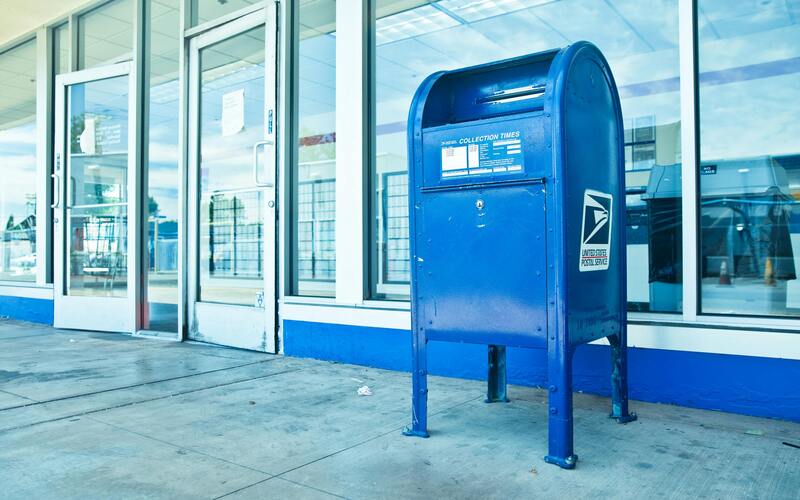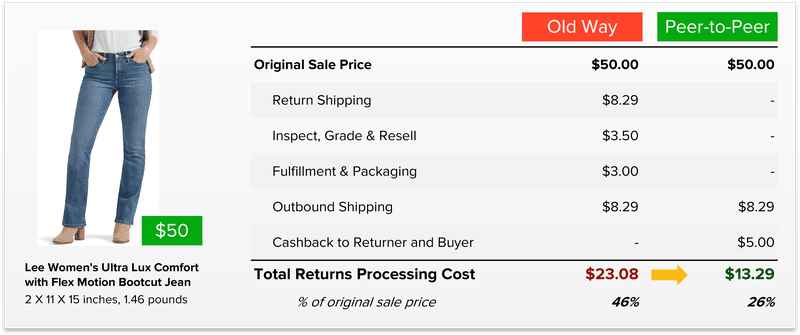PONY UP Act: USPS Could Be Paying for Late Deliveries

Last updated on February 4, 2025

In this article
 3 minutes
3 minutes
Mail delivery has become increasingly unreliable, and lawmakers are taking action. Legislators have reintroduced the PONY UP Act, a bold legislative effort to address chronic delays in postal service by holding the United States Postal Service financially responsible for late deliveries. The proposal has sparked discussions across industries, particularly within the e-commerce sector, which relies heavily on timely delivery to meet customer expectations. If passed, the legislation could introduce new financial liabilities for USPS while reshaping the landscape for online sellers and consumers alike.
Understanding the PONY UP Act
Formally known as the “Penalizing Oversight Neglecting Your Universal Postal Service” (PONY UP) Act, this bill seeks to reimburse consumers for late fees incurred due to delayed USPS deliveries. Specifically, it would require USPS to cover penalties arising from tardy bill payments (e.g., that pesky $35 late fee when a credit card payment is not received on time) when the delay results from late mail service. The legislation is in response to many complaints about unreliable delivery service that has led to financial burdens for its users.
The regulation would apply to situations where a bill, notice, or payment was mailed with ample time to arrive before its due date but was delivered late. It also proposes an online and in-person claims process for reimbursement and an appeal mechanism for denied claims. Additionally, the legislation mandates annual reports on USPS delivery performance to improve transparency and oversight.
Why the PONY UP Act is Being Introduced
USPS has faced increasing scrutiny over delivery inefficiencies, particularly in rural areas, which have frequent delays. Audits have revealed significant lags in sorting and delivering mail. Reports cite instances of late medical payments, utility bills, and even time-sensitive shipments such as live poultry for agricultural businesses. These delays have led to growing frustration among consumers and businesses that depend on consistent delivery expectations for financial stability and operational continuity.
Legislators argue that the PONY UP Act will create a stronger incentive for USPS to prioritize service reliability. By attaching financial consequences to delivery failures, the bill aims to ensure that USPS meets its congressionally mandated six-day delivery obligation while providing relief to those negatively affected by missed service level agreements (SLAs).
Potential Impacts on E-Commerce
If the PONY UP Act becomes law, it could mean several things for the e-commerce industry, which relies heavily on USPS for daily business operations:
- Improved Delivery Performance: The prospect of financial penalties may push USPS to improve efficiency. Fewer delays translate to increased consumer confidence in delivery expectations for online purchases.
- Rising Shipping Costs: USPS may need to increase shipping rates to offset potential investments required to meet the expectations established by law. Those fees would be passed onto e-commerce businesses, pushing operational costs higher and creating margin pressure for merchants of small, light, and inexpensive items that are heavily reliant on USPS for affordable shipping solutions to turn a profit. They may be unduly forced to adjust product and pricing strategies and/or explore alternative carriers to remain viable.
- Greater Emphasis on Delivery Guarantees: Online retailers that depend on USPS’s Priority Mail and other expedited services may benefit from increased accountability, as USPS would be compelled to meet delivery SLAs. Late deliveries are rarely the result of late shipping. E-commerce businesses, as a whole, are very good at meeting their customers’ on-time shipping obligations. As the carrier’s delivery reliability increases, so does consumer trust, resulting in more online shopping and, thus, more growth and prosperity for the industry.
- Changes in Carrier Strategies: One e-commerce Seller told me, “Almost anything is better than USPS; I’m confident that a messenger pigeon is better than USPS.” As confidence in USPS increases, more merchants who had lost faith in the service and migrated to more reliable national carriers may reintroduce lower-cost USPS services to improve their profit margins.
Shipping and logistics are pivotal to the success of online retail, and any regulatory changes affecting USPS operations will inevitably profoundly impact the industry. Retailers and brands should monitor legislative developments and be prepared to adapt to potential cost increases or modifications to service levels.
Summary
The PONY UP Act is an effort to address longstanding issues with USPS delivery delays. It provides a mechanism for consumer protection while aiming to drive operational improvements. While primarily intended to target and remedy first-class mail service issues, its potential impact on e-commerce remains speculative. While increased accountability could enhance service reliability, shipping rate hikes could challenge Sellers dependent on affordable delivery options.

Up to 64% Lower Returns Processing Cost


